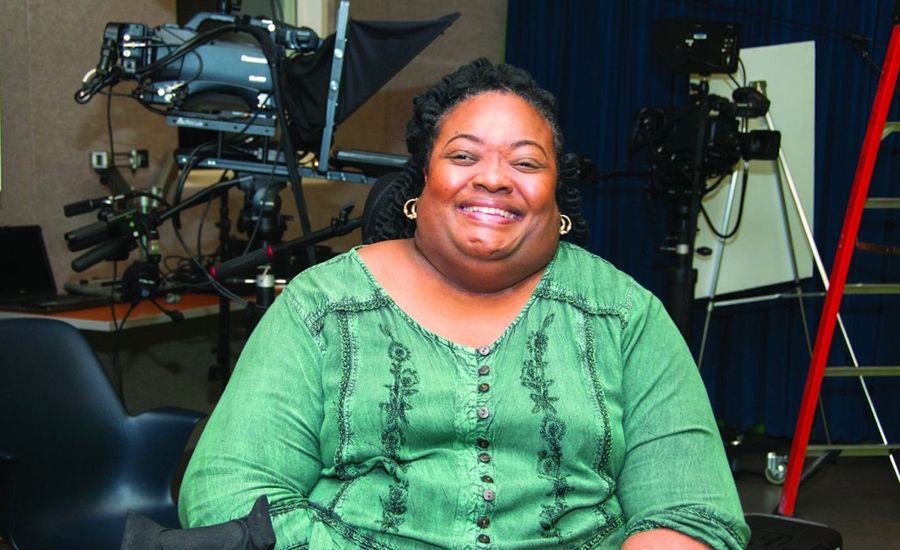Crystal Emery is an award-winning filmmaker, an author, an actress and a playwright. She also lives with an incurable illness that has left her paralyzed and in a wheelchair for the last 14 years.
These challenges have not kept her from pursuing her purpose, and her latest documentary, Black Women in Medicine is evidence of that. At the time Guideposts.org caught up with Emery, Black Women in Medicine was being released in New York and L.A. to critical acclaim. The inspiring documentary traces the history of Black women in the medical field and all of the obstacles they overcome in pursuit of offering health solutions to the masses.
“I wake up every day and I love what I do,” Emery tells Guideposts.org of why she, like her documentary subjects, keeps going, despite challenges. “And I also love life. When you think of love as being unlimited bliss, then nothing is impossible.”
Her limitless positivity is how she devised a plan to pursue filmmaking, even as she could no longer use her hands.
“It takes a lot of people to move this show,” she shares. “For example, we filmed [Black Women in Medicine] in Washington, D.C. I had to rent a hospital bed, and a Hoyer lift, and had to bring three people because it takes three people to get you out of the wheelchair safely and onto the Hoyer lift to the hospital bed. It takes a lot of effort. I’m not functioning on my own. I can’t use a fork; I can’t wash my face, or wipe my tears, or blow my nose. I have a serious support team.”
Even as a young child with an undiagnosed and debilitating genetic disorder, Emery still chose joy. She had a passion for acting, and wrote and directed her first play in the fifth grade. But in the sixth grade she began experiencing physical complications. She started falling down often, even knocking her hip out of place and being in a body cast for three months. But her left leg never healed properly.
“People were saying, ‘Oh you’re lazy,’” Emery shared about the difficulty she had being active after the accident. Still, she maintained her passion for drama, theater and film, even as she began falling down again at the end of her high school years.
“Eventually, [when I was in college,] I went to a neurologist who said, ‘I think you have Charcot-Marie-Tooth (CMT) [disease],’” she said, a an incurable degenerative nerve disease and form of muscular dystrophy that causes muscle weakness and paralysis.
“It wasn’t until the disease started getting worse and I couldn’t act anymore that I thought about directing,” she says of her evolution into filmmaking. “One thing lead to another, and I was working with [famed director and Yale Drama dean] Lloyd Richards and [Pulitzer Prize-winning playwright] August Wilson on Fences, and I met [actor/director] Bill Duke. That’s when I said, ‘You know what, film is what I really want to be doing.’”
At the time, there wasn’t much known about the disease and Emery didn’t know to fear it.
“I didn’t know I was disabled, until I got the wheelchair. I put on a leg brace and kept running around the world,” she said. “Did I know I was going to be a quadriplegic? Never in my wildest nightmare.”
The genetic disorder that would paralyze her body and confine her to a wheelchair progressed slowly.
“It became harder and harder to walk in the late 90s. By 2002, I was using a wheelchair, but I could still use my hands. And then I got really sick and my hands became paralyzed.”
That wouldn’t stop her from a near-30-year career in the arts, producing more than 20 plays, directing several video series and two full-length documentaries, and writing three books.
“When I wrote my first book about my grandmother, real friends volunteered one day a week to come type for me. And through that process, I learned that I could create and write again, [despite CMT].”
Her village of helpers continue to support her as she pursues more of her dreams.
The day Guideposts.org spoke to Emery, a tragedy had just struck a close member of her family. Still, Emery has managed to maintain the same inspiring level of optimism that her films possess, even as her topics highlight the ugliness of racism in America.
“That’s how I am,” Emery said of her positive attitude. “I want my experiences to expand who I am, not contract. That’s how I’ve always been.”






